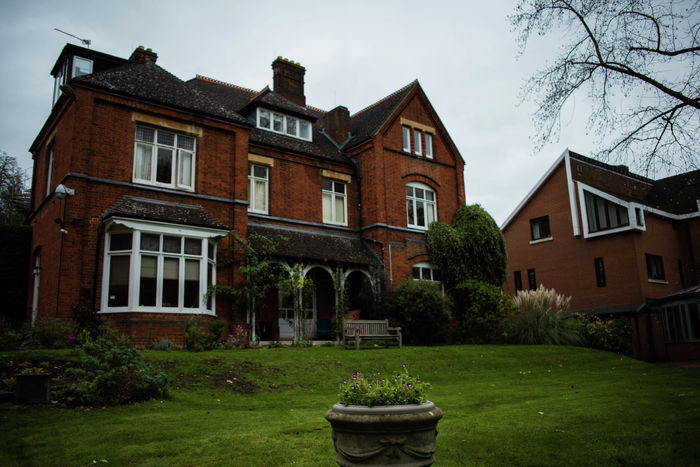Cambridge staff kept jobs after upheld sexual misconduct complaints
The SU has called for the University to ‘handle’ sexual misconduct ‘with the severity it deserves’

Cambridge University allowed multiple staff members to keep their jobs despite upholding allegations of sexual misconduct against them, Varsity can reveal.
Six student complaints of sexual misconduct, made against Cambridge staff, have been upheld by the University in the past six academic years, according to an FOI investigation. But, only one of these cases has resulted in a member of staff being fired.
In each of the five other cases, the accused staff member was allowed to keep their job at the University. Three upheld complaints resulted in the relevant employee being issued a “formal warning,” while two cases were dealt with using an “informal warning”.
Each of these complaints were made, and upheld by the University, between the 2018/19 and 2023/24 academic years.
“Sexual misconduct,” according to a University code of conduct, can include attempted or actual sexual intercourse without consent, “sharing private materials of another person without consent”, “inappropriately showing sexual organs to another person,” “repeatedly following another person without good reason,” and “making unwanted remarks of a sexual nature”.
Elleni Eshete, Cambridge SU’s welfare officer, told Varsity that sexual misconduct is a “serious offence” which can “negatively impact” individuals for the rest of their lives.
Eshete called on the University to take action: “The Cambridge SU urges the University of Cambridge to handle the matter with the severity it deserves.”
Between 2019/20, when Cambridge’s Office of Student Complaints, Conduct, and Appeals (OSCAA) began recording the figure, and 2022/23, 41 students lodged complaints of general “staff misconduct”. 26 of these were subsequently investigated by the University, with six being eventually upheld. OSCAA’s report for 2022/23 described staff misconduct complaints as an “area of increase”.
In June, Cambridge partially banned sexual relationships between staff and their students in a bid to prevent sexual misconduct. The new policy states that academics who have “direct responsibilities” for students are now prohibited from entering relationships with students under their academic or pastoral care.
In 2022, Varsity uncovered multiple accounts of fellows matching with students as young as 18 on dating apps.
Last year, Varsity found that students had been “actively discouraged” from going to the police with sexual assault allegations, instead being urged to resolve their complaints internally through OSCAA.
One student, who was stalked by someone in a position of power at her college, told Varsity that this misconduct “would have stopped much sooner” if they had initially reported it to the police.
In July, the Office for Students (OfS), the independent regulator for higher education, said that it will introduce new requirements for universities to protect students from sexual misconduct, following a consultation which found that 20 percent of students have experienced “unwanted sexual behaviour”.
Universities UK (UUK) told Varsity: “The results of this survey are sobering. Sexual misconduct is unacceptable on campus as in any walk of life, and no student or staff member should have to experience it.”
“Sadly, it is clear this wider societal problem continues to impact higher education, despite much positive work in the sector to tackle it. Universities must go further still, doing everything possible to bring about a cultural change and stamp out sexual misconduct on campus,” the organisation said.
“UUK and our members will now work constructively and rapidly with the OfS to help implement changes in support of our shared commitment to tackling harassment,” they added.
An OfS spokesperson told Varsity that universities will now be obligated to inform students of the measures they are taking to prevent harassment and sexual misconduct.
The spokesperson also said: “While we’re unable to comment on individual universities and colleges, it’s clear that students want to see higher education providers do more to tackle harassment and sexual misconduct.”
“Universities and colleges are also being asked to take steps to prevent an abuse of power in personal relationships between staff and students. Many institutions have already banned relationships between students and staff, and we expect more will follow suit,” they added.
A spokesperson for the University of Cambridge said: “There is no place for any form of harassment or sexual misconduct at the University of Cambridge.”
“While disciplinary action may vary depending on the circumstances of a particular case, we always take allegations seriously, providing support for those affected, clear systems for reporting incidents and taking action where misconduct is found,” they continued.
 Interviews / You don’t need to peak at Cambridge, says Robin Harding31 December 2025
Interviews / You don’t need to peak at Cambridge, says Robin Harding31 December 2025 News / Downing investigates ‘mysterious’ underground burial vault 29 December 2025
News / Downing investigates ‘mysterious’ underground burial vault 29 December 2025 News / Unions protest handling of redundancies at Epidemiology Unit30 December 2025
News / Unions protest handling of redundancies at Epidemiology Unit30 December 2025 Lifestyle / Ask Auntie Alice29 December 2025
Lifestyle / Ask Auntie Alice29 December 2025 Features / ‘Treated like we’re incompetent’: ents officers on college micromanagement30 December 2025
Features / ‘Treated like we’re incompetent’: ents officers on college micromanagement30 December 2025









